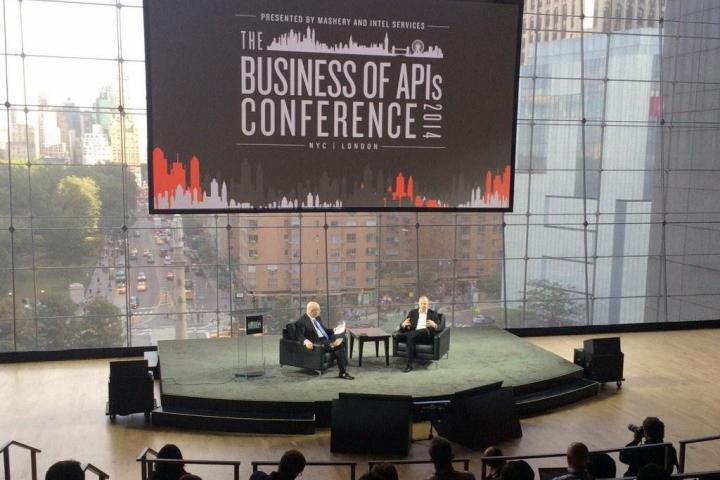
“The idea is to empower people in wellness and fitness,” said Basis co-founder Marco Della Torre at an Intel sponsored conference in New York City. The Business of API’s Conference held earlier this month focused on the growing petabytes of data wearables are expected to generate in the next few years. Della Torre said that the amount of data generated was doubling every 12 months — by 2020 there will be some 50 billion new consumer devices churning out even more information.
Intel hopes one of those wearables will be the Basis Peak, a $200 smart fitness and health tracking watch due out in time for the holiday shopping season. The new model assesses heart rate by monitoring blood flow with an optical sensor, as well as measuring galvanic skin response, skin temperature, and body position using a 3-axis accelerometer. Della Torre said it would also last for several days on a single charge and use the data to help wearers set daily goals.
Related: Intel’s new role — the glue that holds the Internet of Things together
“We’re looking at how to use information to change people’s behavior,” he explained.
One of the major improvements of the new model is its reported ability to monitor one’s heart rate while the wearer is exercising, the company said in an interview before the conference. The current model cannot do so, while competitors, such as the $199 Mio Alpha watch already boast such a feature.
Della Torre emphasized that society is progressing from a BYOD to a BYOW — bring your own wearable — culture. He described how this Internet of things would include everything from real-time video streams of service personnel dealing with customers that are identified using facial recognition software to watches that act as security passes. He pointed out that the Peak will be “a full 24/7 experience” that even measures how much REM sleep versus deep sleep a wearer is getting.
“We’re looking at how to use information to change behaviors.”
Related: The first stylish wearable for women is also practically useless
With Google and Apple also eyeing the fitness/wearable market, Della Torre argues that watches are the most natural wearable form factor. Intel and Basis are working with Fossil, for example, to develop watches that appeal to the mass market.
For many years, Intel has demonstrated smart homes and devices aimed at healthcare and supporting the aging boomer population. It has also been piqued by its failure to translate the success it enjoyed in the desktop computing market into the exploding mobile and connected car arenas. This time, Intel seems determined not to let the Internet of Things pass it by.


